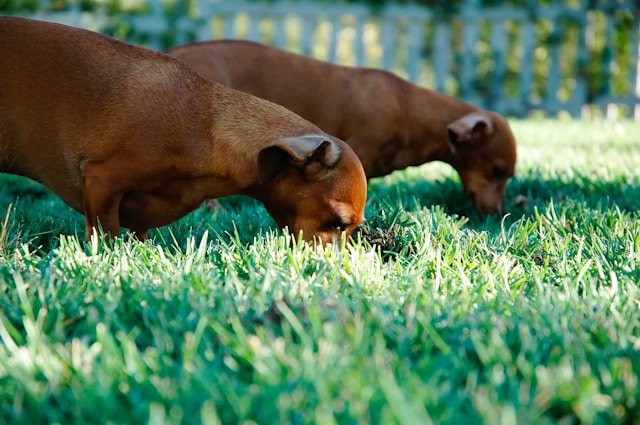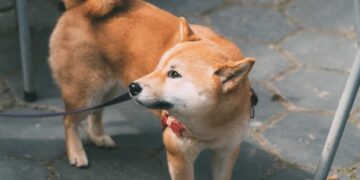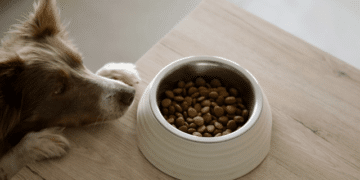If you’re a dog owner, you’ve probably witnessed your dog munching on grass during walks or even while playing in the yard. It’s a curious behavior that many pet parents wonder about. While some dogs seem to eat grass out of habit, others may do it sporadically, leaving owners to wonder: Why does my dog eat grass, and is it something I should be concerned about?
In this article, we’ll explore the various reasons why dogs eat grass, whether this behavior is normal, and when it might indicate a potential health issue. By the end, you’ll have a better understanding of this common canine behavior and how to address it if necessary.
Common Reasons Dogs Eat Grass
1. Natural Behavior: Dogs as Omnivores
Dogs are naturally omnivores, meaning they consume both animal and plant-based foods in the wild. In their natural environment, dogs might eat grass as part of their regular diet, particularly when they don’t have access to a wide variety of foods. Grass eating could simply be an instinctive behavior inherited from their wild ancestors. Wild canids, like wolves and foxes, have been known to eat plant matter in addition to their prey. For many dogs, consuming grass may be a throwback to this primal behavior.
2. Seeking Nutrients: Grass as a Source of Fiber
Another reason why dogs eat grass could be related to their nutritional needs. Some experts believe that dogs might eat grass because they are seeking out nutrients that they are lacking in their regular diet. Grass is a source of fiber, and this may help dogs with digestion or relieve mild constipation. While it’s not a substitute for proper nutrition, eating grass could be an instinctive way for dogs to self-medicate or regulate their digestive systems.
3. Instincts and Boredom
Sometimes, eating grass may be a result of boredom or a natural instinct to explore their environment. Just as dogs chew on bones, toys, or other objects, eating grass could simply be a way to engage with their surroundings. This is especially true for dogs who aren’t getting enough stimulation, exercise, or mental engagement. If your dog spends a lot of time in the yard and is left to roam without other activities, it may turn to grass-eating as a form of entertainment.
4. Enjoyment: Some Dogs Just Like the Taste
It’s also possible that some dogs just enjoy the taste and texture of grass. While we may find it strange, some dogs are naturally drawn to the grassy greens they find in gardens, parks, or fields. Just like humans enjoy a snack, some dogs may find chewing on grass to be an enjoyable pastime.
When to Be Concerned: Potential Health Issues
While eating grass is generally harmless, there are times when it may signal that your dog is experiencing health issues. It’s important to pay attention to your dog’s behavior and health to determine whether their grass-eating is normal or a sign of something more serious.
1. Indicating Gastrointestinal Distress
One of the primary concerns dog owners have about their pets eating grass is that it might be a sign of gastrointestinal distress. It’s not uncommon for dogs to eat grass in an attempt to induce vomiting. If your dog eats grass and then promptly vomits, it could be trying to relieve an upset stomach or discomfort in its digestive tract. In this case, it might be an instinctive response to try to make itself feel better.
However, frequent or persistent vomiting after eating grass could be a cause for concern. If your dog is regularly vomiting, experiencing diarrhea, or displaying other signs of gastrointestinal issues (such as lethargy or loss of appetite), it’s important to consult with a veterinarian to rule out any underlying health problems.
2. Grass-Eating as a Sign of Dietary Imbalances or Allergies
In some cases, dogs may eat grass because their diet is lacking in certain nutrients. If your dog is not getting a balanced diet with all the essential vitamins and minerals, it might turn to grass or other plants to supplement its nutrition. Similarly, if your dog is experiencing food allergies, it might be seeking relief from gastrointestinal discomfort caused by allergens. If you notice other symptoms such as itching, skin irritation, or excessive licking, this could indicate that allergies are at play.
To address potential dietary imbalances, ensure that your dog is on a high-quality, nutritionally balanced diet. If you’re unsure, your veterinarian can recommend the best food based on your dog’s age, breed, and health condition.
3. Dogs with Pica: Compulsive Eating of Non-Food Items
Occasionally, grass-eating can be a sign of pica, a condition where dogs compulsively eat non-food items. While it’s more common for dogs with pica to eat objects like dirt, rocks, or plastic, some dogs may eat grass as part of this behavior. Pica can stem from boredom, anxiety, or nutritional deficiencies, and it often requires intervention to address the underlying cause. If your dog eats grass along with other non-food items, it’s worth discussing with a vet to determine the appropriate treatment.
4. Signs to Watch For
If your dog is regularly eating grass and showing signs like vomiting, lethargy, changes in appetite, or abnormal behavior, it’s important to monitor the situation closely. While occasional grass-eating is typically harmless, these additional symptoms could indicate a more serious health issue that requires attention.
What You Can Do: Should You Stop Your Dog from Eating Grass?
While eating grass is usually not dangerous, there are steps you can take if you’d like to reduce or stop the behavior.
1. Tips on Preventing the Behavior
If you’re concerned about your dog’s grass-eating habit, consider providing more enrichment and mental stimulation. Take your dog on longer walks, provide interactive toys, or engage in games like fetch to keep them active and distracted. If your dog is eating grass due to boredom, these activities can help shift their attention away from the grass.
Another strategy is to switch up your dog’s diet, particularly if you suspect a nutritional deficiency. Make sure your dog is eating a balanced diet with plenty of fiber, vitamins, and minerals. You can also consider adding a fiber supplement to their food to support healthy digestion.
2. How to Safely Supervise Your Dog
If you’re worried about your dog eating harmful plants, you can supervise them while they’re outdoors. Preventing access to areas with toxic plants or chemicals can reduce the risk of your dog ingesting something dangerous. Always be mindful of any pesticides or herbicides that may have been used in your yard or public spaces.
3. When to Consult a Veterinarian
If your dog’s grass-eating behavior is persistent or accompanied by other concerning symptoms, it’s always best to consult a veterinarian. A vet can assess your dog’s overall health, rule out any underlying conditions, and provide guidance on diet, behavior, or treatment options if necessary.
Conclusion
In most cases, eating grass is a normal behavior for dogs and not something to worry about. Dogs may eat grass for a variety of reasons, including natural instincts, nutritional needs, boredom, or simply because they enjoy it. However, if your dog’s grass-eating is accompanied by signs of gastrointestinal distress, dietary imbalances, or pica, it’s important to pay attention and consult a veterinarian.
By observing your dog’s behavior and health closely, you can determine whether grass-eating is a harmless habit or a sign of something that requires attention. With the right care and attention, your dog can continue to enjoy their walks and outdoor time without any concern.









